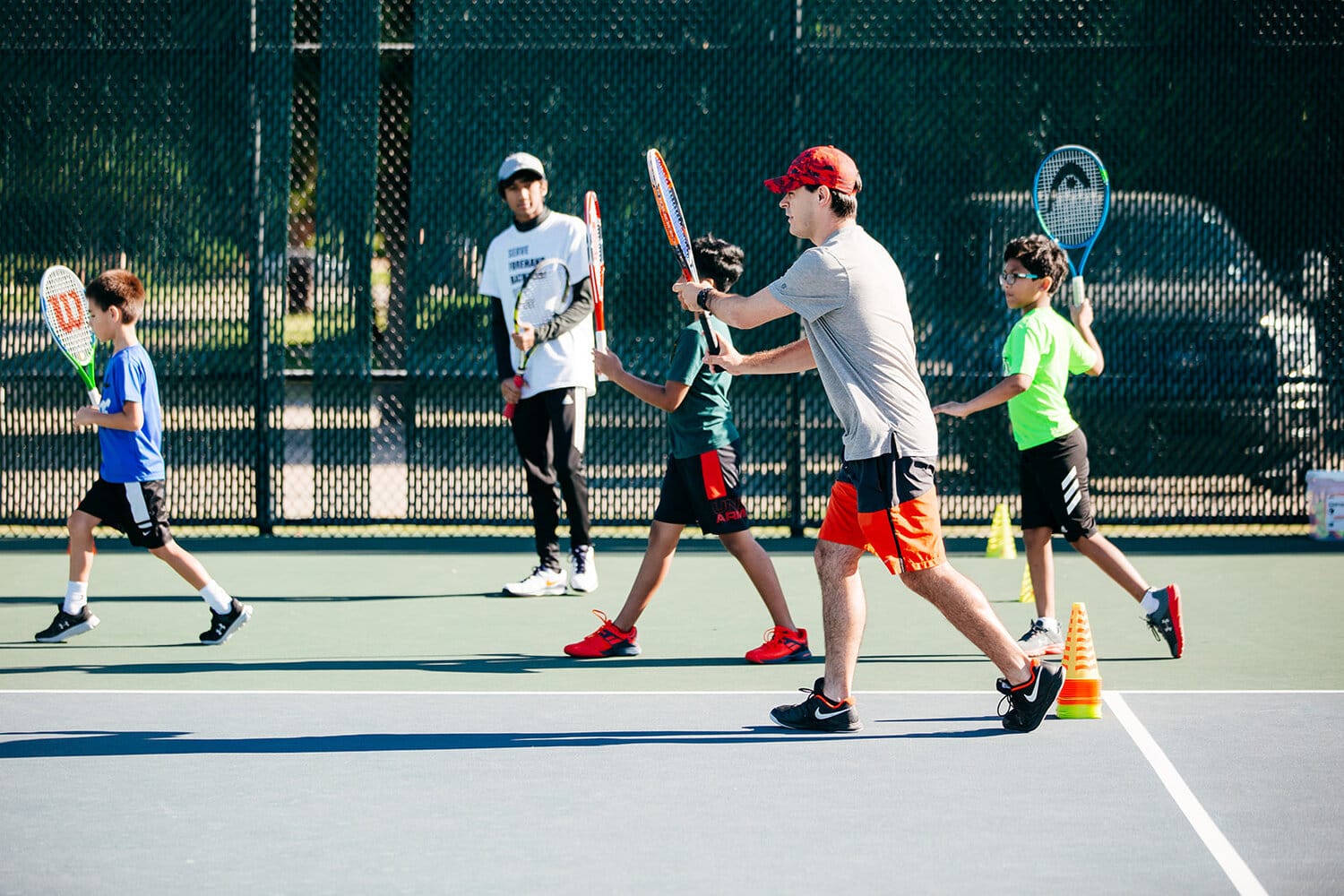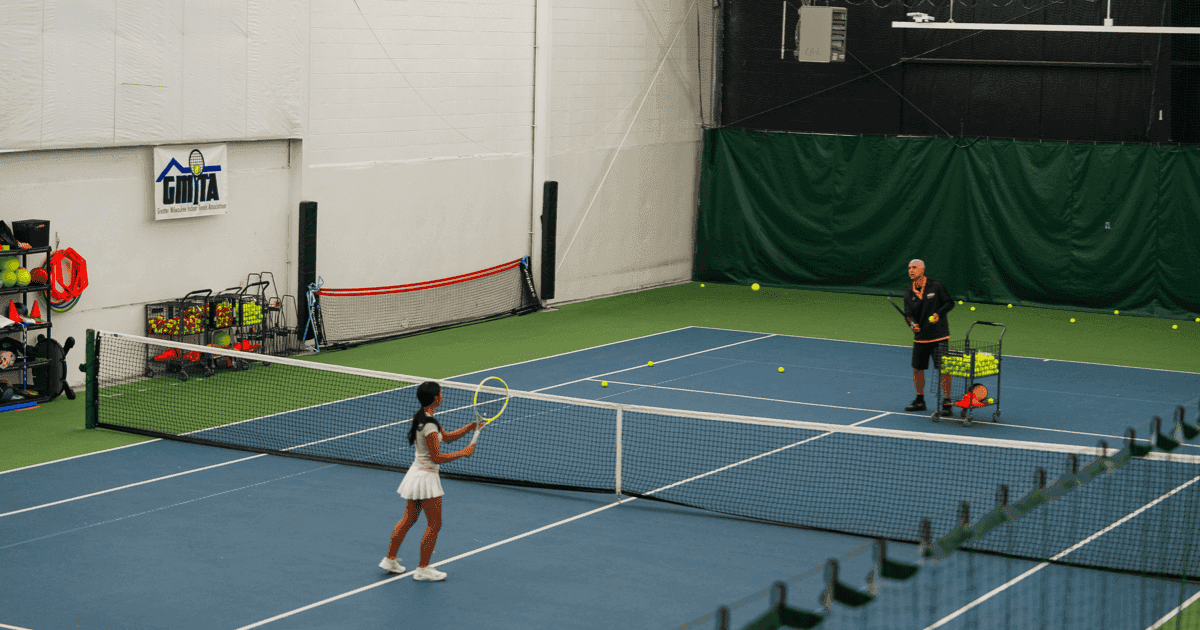Private vs Group Lessons: Which Learning Style Fits You?

Introduction
Choosing between private and group lessons can shape how you learn and grow. Here's a quick breakdown to help you decide:
Private Lessons: One-on-one attention, personalized pace, immediate feedback, and faster progress. Best for focused learning but comes at a higher cost.
Group Lessons: Social interaction, shared learning, peer motivation, and budget-friendly. Great for collaboration and steady growth.
Quick Comparison
Factor | Private Lessons | Group Lessons |
|---|---|---|
Learning Focus | Tailored to individual needs | Shared focus among participants |
Feedback | Immediate and detailed | General and periodic |
Cost | Higher | Lower |
Social Interaction | Minimal | High |
Schedule | Flexible | Fixed |
Whether you want personalized guidance or thrive in a collaborative environment, the choice depends on your goals, budget, and learning style. A mix of both might be the perfect balance.
Private lessons & training Vs Group lessons - Which is better?
Comparing Private and Group Lessons
Choosing between private and group lessons comes down to understanding the key differences. Here's a breakdown of what sets these two learning styles apart.
Focused Learning
Private lessons are all about you. The instructor tailors the session to your goals and adjusts the pace to match your progress. In group lessons, you'll share the instructor's attention, but you can also learn from the feedback and progress of others in the group.
Cost Comparison
Private lessons tend to cost more because you're paying for exclusive, one-on-one time. Group lessons, on the other hand, split the cost among participants, making them a budget-friendly option.
Social Interaction
Group lessons bring a social element into the mix. You'll collaborate, share experiences, and even enjoy a bit of friendly competition, which can keep you motivated. Private lessons, while focused, don't offer much in terms of peer interaction.
Monitoring Progress
With private lessons, your progress is closely monitored, and feedback is personalized and immediate. In group lessons, evaluations are broader and less detailed, as the instructor has to manage multiple participants.
Aspect | Private Lessons | Group Lessons |
|---|---|---|
Instructor focus | Full attention, personalized pace | Shared attention, group pace |
Feedback | Immediate, detailed | General, periodic |
Cost | Higher per session | Lower, shared among group |
Social interaction | Minimal | Strong, community-driven |
Schedule flexibility | Highly adjustable | Fixed time slots |
Both formats cater to different needs. Private lessons work well for those looking for quick, personalized results. Group lessons are ideal if you enjoy learning with others and value the social aspect. The choice ultimately depends on your learning style, goals, and budget.
Deciding Which Option Works for You

Choosing between private and group lessons depends on factors like your skill level, learning style, and personal goals.
Best Choice for Beginners
Private lessons are great for beginners to develop proper techniques right from the start, helping to avoid bad habits [2]. On the other hand, group lessons create a social, supportive environment that can ease performance anxiety and keep you motivated [1]. Your decision comes down to whether you value focused, one-on-one guidance or thrive in a collaborative setting.
As you improve, your needs may change, and so might your preference for lesson types.
Best Choice for Advanced Learners
For advanced learners, the focus shifts to sharpening skills and achieving mastery.
Private lessons are ideal for fine-tuning specific techniques or addressing particular challenges [5]. For example, an advanced tennis player might work on perfecting their serve or planning tournament strategies.
Group lessons, however, provide advanced learners with the chance to engage in peer-driven challenges and collaborative problem-solving [2]. Interacting with other skilled individuals can offer new insights and healthy competition, both of which can push your skills even further.
Other Factors to Think About
When deciding which option suits you, consider practical aspects like:
Schedule flexibility
Preferred learning pace
Budget
Motivation style
Support system
If you value direct, personalized feedback, private lessons might be the way to go [4]. But if you enjoy learning through observation and gain energy from social settings, group lessons could be a better fit [1].
A balanced approach can also work well. Many learners start with private lessons to build a strong foundation and later transition to group lessons for practice and social engagement. Tailor your choice to your goals, and be open to adjusting as your needs evolve.
Examples of Private and Group Lessons
Sports Examples
In tennis, private lessons help sharpen skills like serving mechanics with instant feedback, speeding up progress [2]. Group lessons focus on improving strategy, building adaptability, and boosting confidence in competitive settings [1].
Private golf lessons zero in on swing mechanics, offering detailed feedback to correct specific issues [2]. On the other hand, group golf lessons teach players about course management and etiquette, exposing them to a variety of scenarios [2].
Skill-Based Examples
Private piano lessons address specific challenges like finger placement and timing, helping students improve faster with customized exercises [2][6]. Group music lessons, however, focus on ensemble skills, teaching players to listen, maintain rhythm, and adjust their performance within a group setting [1].
Private art lessons emphasize technique and personal style, offering immediate feedback on things like brush control, color mixing, or perspective [3]. Group art classes, meanwhile, encourage creativity and experimentation, often inspired by collaboration and peer input [1].
Activity Type | Private Lesson Focus | Group Lesson Focus |
|---|---|---|
Tennis | Skill refinement, personalized feedback | Strategy, match play experience |
Golf | Swing mechanics, tailored corrections | Course management, etiquette |
Music | Precision, individual exercises | Group performance, rhythm coordination |
Art | Technique, personal style | Creativity, peer collaboration |
Private lessons excel at providing focused, detailed instruction, while group lessons emphasize teamwork and shared experiences. Whether you're aiming to fine-tune specific skills or grow through collaboration, the choice depends on your personal goals and learning style. Both approaches bring distinct benefits to sports and artistic pursuits.
Conclusion
Deciding between private and group lessons depends on what works best for your goals and preferences. Private lessons focus entirely on your needs, offering personalized guidance to fine-tune your skills [2][5]. While these typically come at a higher cost, they’re especially useful for those looking to master advanced techniques [5].
On the other hand, group lessons promote teamwork and shared learning experiences, making them a great choice for building basic skills [1]. The group setting encourages collaboration and is often more budget-friendly [4]. Both formats have been effective in areas like sports, music, and art [2][4].
Your learning journey might include a mix of both. For example, you could start with group lessons to gain confidence and foundational skills, then switch to private sessions for advanced training [4].
The most important factor is being clear about how you learn best and staying open with your instructor about your needs. Whether you choose private or group lessons, pick an option that keeps you engaged and motivated [2][1][4].
Learning Aspect | Private Lessons | Group Lessons |
|---|---|---|
Pace and Feedback | Tailored pace, instant feedback | Group-paced, shared learning |
Cost Efficiency | Higher cost, faster results | Lower cost, steady progress |
Social Dynamic | Individual focus | Collaborative environment |
Ultimately, your decision should align with your skill level, goals, and practical considerations like your budget and schedule. The best approach is the one that keeps you on track and excited to learn [2][5][4].
Quick Comparison: Private vs Group Lessons
Here's a quick look at how private and group lessons differ, helping you decide which option suits your needs and preferences.
Factor | Private Lessons | Group Lessons |
|---|---|---|
Learning Environment | One-on-one attention | Collaborative and group-based |
Pace | Tailored to you | Follows group dynamics |
Feedback | Immediate and specific | General and shared |
Schedule | Flexible | Fixed |
Cost | Higher | More affordable |
Progress Tracking | Detailed | Group-focused |
Skill Development | Faster improvement | Steady growth |
Social Interaction | Minimal | High |
This table serves as a handy guide for comparing the key features of each lesson format [2][5].
When deciding, consider factors like:
Your current skill level
How you prefer to learn
What goals you're aiming to achieve
Your time availability and budget
A mix of both formats can often provide the best results [2][1][4]. For example, group lessons can be great for building a strong foundation, while private lessons can help fine-tune specific skills.
Lastly, finding an instructor whose teaching style matches how you learn can make a big difference [2][3][4].
Next, let's dive into some resources to help you make an informed choice.
Helpful Resources
Once you've weighed the pros and cons of private versus group lessons, having the right tools and platforms can make your learning experience much more effective.
TeachMe.To is a platform that connects learners with qualified instructors across activities like Golf, Tennis, and Pickleball. Here's what it offers:
Feature | Description | Why It Matters |
|---|---|---|
Expert Verification | Instructors are carefully vetted | Guarantees quality teaching |
Flexible Scheduling | Book lessons that fit your schedule | Works around your lifestyle |
Skill Level Matching | Programs suited to all abilities | Tailored to your needs |
Package Options | Choose single lessons or bundles | Budget-friendly options |
Other Learning Platforms
If you're exploring additional resources, these platforms can also help:
K&M Music School: Offers detailed guidance on deciding between private and group lessons [4].
Sloan School of Music: Highlights the social benefits of different learning environments [2].
Track Your Progress
TeachMe.To includes tools for setting goals and monitoring your progress, so you can see how you're improving - whether you're learning solo or in a group.
Explore the options on TeachMe.To to find instructors, check profiles, and book lessons. No matter which path you choose, these resources are here to help you achieve your learning goals.
FAQs
What is the difference between group coaching and individual coaching?
The key difference lies in how the learning is structured and the focus of the sessions. Individual coaching is all about personalized, one-on-one guidance, while group coaching encourages collaboration and learning alongside peers.
Individual coaching offers:
Personalized attention tailored to your needs
Immediate, detailed feedback
Flexible scheduling that fits your routine
Specific focus on areas you want to improve
Group coaching provides:
A collaborative environment for shared learning
Motivation and support from peers
A more budget-friendly option
Opportunities for social interaction and shared experiences
Individual coaching works best for those who need focused attention, customized pacing, or specific skill refinement. On the other hand, group coaching is ideal for people who enjoy learning with others, appreciate peer motivation, or are looking for a cost-effective option.
For the best of both worlds, consider combining the two - use group sessions to build core skills and private coaching for honing specific techniques. This approach can help you achieve well-rounded growth [2][4].
